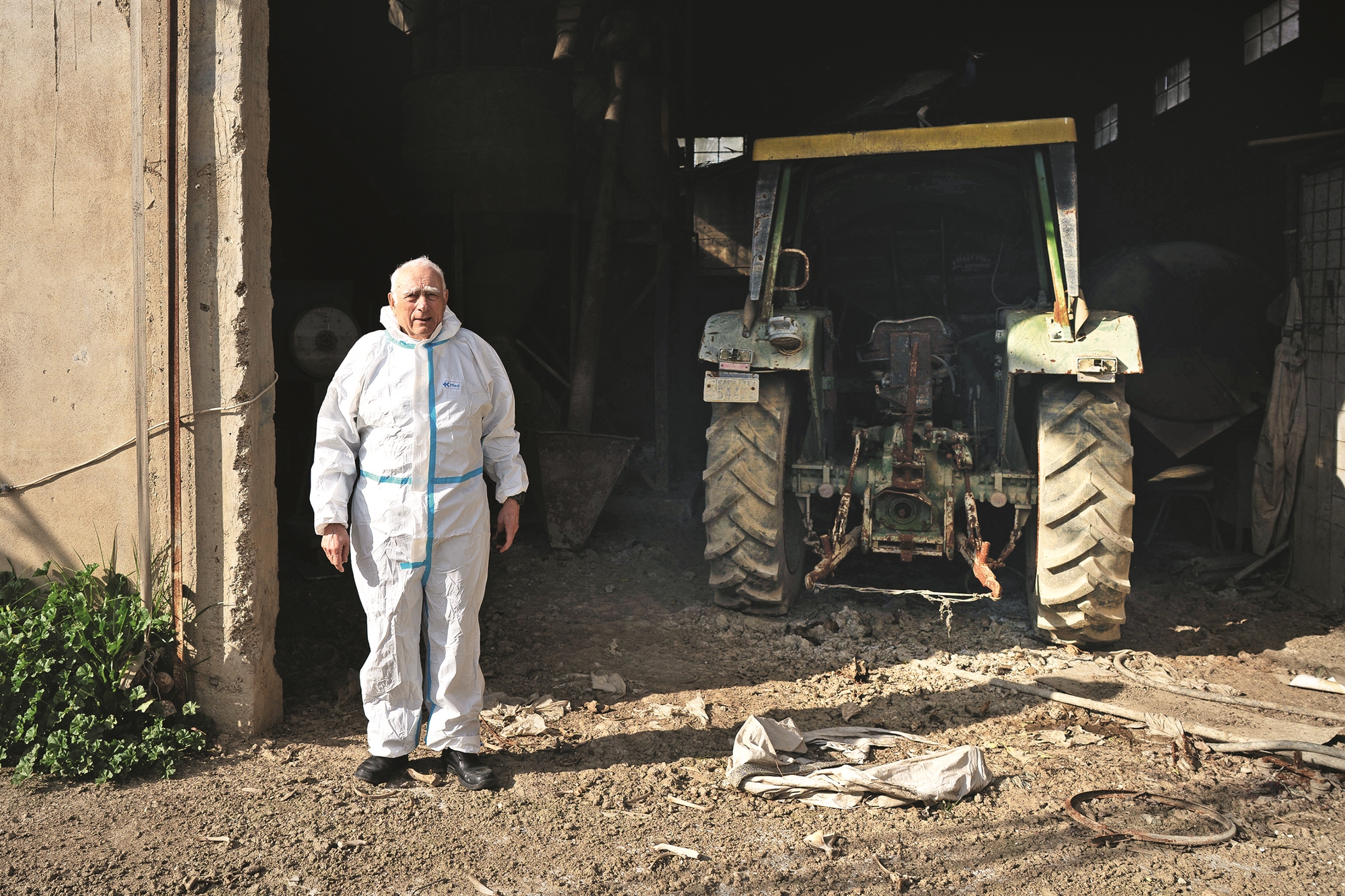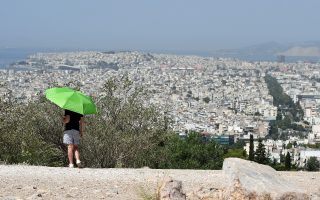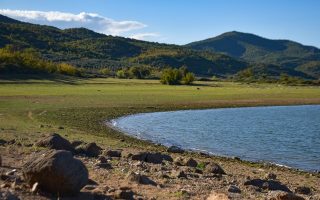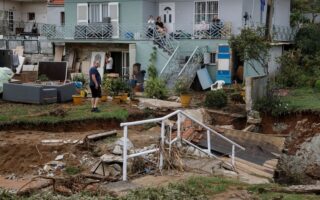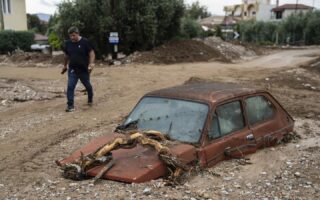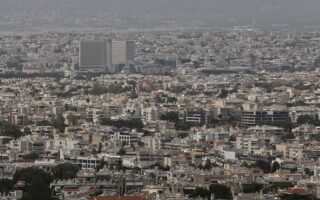Seven months after Daniel, only mud remains in Vlochos
The village used to have about 700 residents before the deluge inundated the region last September, destroying houses, animals and crops
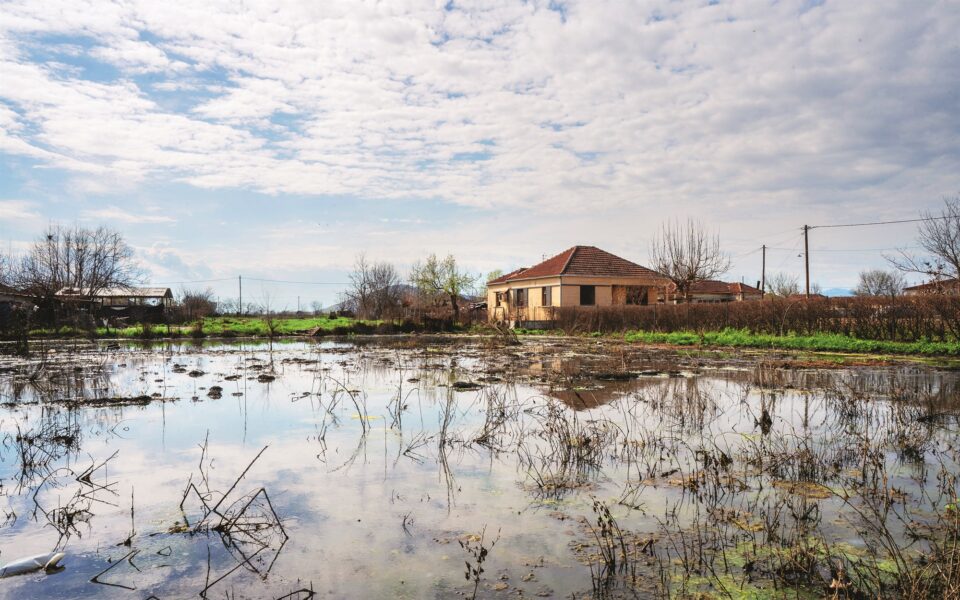
A series of beautiful, simple houses with roofs that look like those we see in children’s drawings. Open spaces, sun, signs of the coming spring in most fields – some of which still look like small stagnant lakes. Nothing is missing from the landscape except the human presence.
Seven months after Storm Daniel hit the village of Vlochos in central Greece, we found ourselves looking at something that resembles a movie set. Everything has remained where it was left after being swept away by the flood. The waters have receded but the local residents are missing. You can walk in and out of their homes without anyone asking you what you want; you can look at the family photos hanging on the damp walls; imagine the family that last summer was watching TV on the rickety set left in the center of what was probably the living room; you can leaf through the muddy archives of the village’s regional clinic that have been piled up at the entrance. A broken vase, some dishes with colorful flowers, a shoe, remnants of an everyday life that no longer exists. In many parts of the village, such remnants form whole mountains, with mud, garbage, and rubble mixed with personal belongings that the state has not yet found the time to remove.
A lawnmower can be heard somewhere in the distance, proving that someone out there still has hope. Manthos Kolonas has put on his coveralls and is weeding in the yard of his parents’ house that was damaged by the flood.
“I come here every day. For psychological reasons, I clean, collect [trash] and then take a picture and send it to my parents who live in Karditsa, to show them that their house is fine and that I am taking care of it,” he tells Kathimerini. He lives two houses away in one of the few two-story buildings in the area. “The upper floor is kind of livable but the house is not really inhabitable. It was a maisonette and the kitchen and dining room were on the ground floor, which flooded. Upstairs there are beds and a bathroom.” He trusts us to come in without a second thought. After all, there’s not much to lose.
“The village was very lively, we numbered 600-700 people, the school had 40 children. On a day like this [Saturday] they would run up and down the square,” Kolonas says and points across the street. “Now all is deserted. All we hear is frogs.”
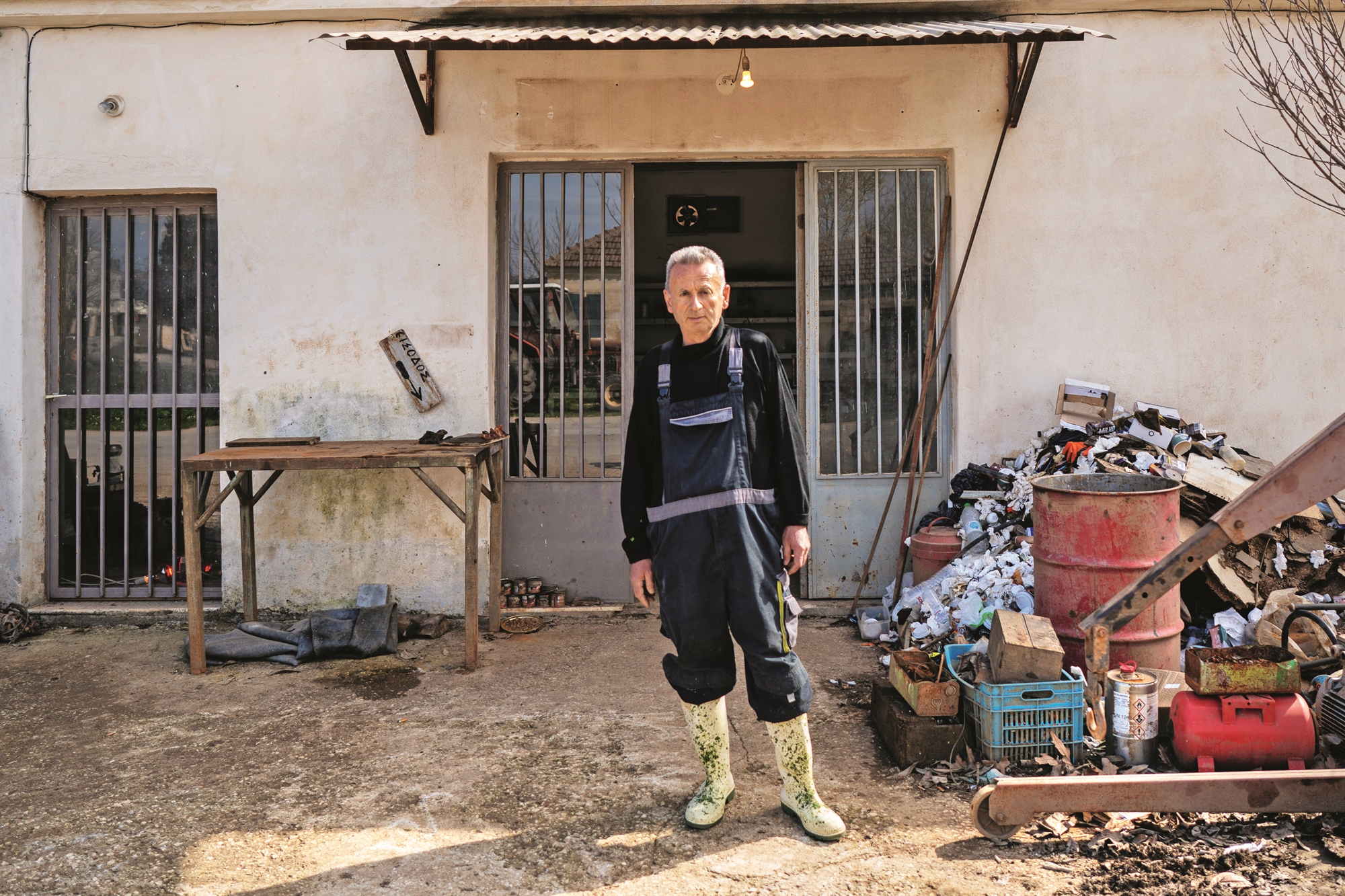
Fewer than 10 people live, in some way, in the village now. The rest have remained in the nearby towns of Karditsa and Larissa, where each has found a place to stay. “They have started fixing up a room in order to come and stay and save money on rent, 500 euros per month. Of course, not everyone will return. Those who have children in the city will stay with them,” Kolonas says. “Houses that used to rent for 150-200 euros climbed to €500 immediately after the disaster. And this was not strangers doing it, it was our neighbors who found us in need. What can you say? The government had told us they would pay us the rent but we got nothing.” There is no anger in his voice, just a tinge of bewilderment about what is happening and sadness. Deep sadness.
‘I come here every day. For psychological reasons, I clean, collect [trash] and then take a picture and send it to my parents who live in Karditsa, to show them that their house is fine and that I am taking care of it,’ says Manthos Kolonas
There is still water around, I note, looking at the puddles all around us. “It didn’t have much, yesterday it rained a little and they filled up again. The earth cannot hold any water at all,” he responds. A tractor crosses the empty road, displacing the mud. “Until now, few people have tried to cultivate the fields.”
The barrel on the roof
He takes us further down the street to see the electrical appliance store he owned. He was repairing motors for drilling, but everything broke down, rusted away in the water. “They called me the day before yesterday. They asked me to come to the store for the assessment. ‘Come over,’ I told them. What could I say. What kind of assessment will they be able to do? You see how everything is?” He points to the yard of the house on the opposite side of the street. “Over there, the sprinkler they had is broken, but I can’t go in to get it.” He points to the roof. “You see a barrel up there? That’s where the waters took it. Then the water receded but the barrel was entangled in the branches of the tree and remained on the roof.”
“You know we don’t have a salary, we are farmers. Every October we get the money from the cotton [we sell] and live on this money the rest of the year. The flood happened just before we picked the cotton. We had made all the expenses but we didn’t collect anything,” he explains. “Didn’t you receive any compensation?” I ask. “Only the €6,500 at the beginning, and not everyone got it,” he replies. “And what do you do now?” He grimaces. “We’re waiting.”
The pig farm
The Chiropal unit in the municipality of Palamas, which forms part of the regional unit of Karditsa, was a model pig breeding farm that was built with great effort and was constantly evolving, incorporating every innovation for the benefit of quality and the lives of the animals. Students from schools and universities and research centers had visited the farm. In the flood caused by Storm Daniel all 6,500 piglets in the unit drowned.
That night the nephew of the owner of the unit, and the security guard with his wife and child, who had stayed in the premises, were rescued by an EMAK disaster response team that transferred them by boat to a levee. Hours later, another boat took them to a nearby village.
Chiropal, as the region and beyond knew it, is now a thing of the past. “The unit is dead, we have nothing inside,” owner Giorgos Didangelos tells Kathimerini. The corn silos are standing but the feed they contain has turned into a huge rotting mass. The machines have been rendered useless, the sows’ maternity wards are damaged. Anything that could have been useful was stolen by looters. When crews came to pick up the dead animals, they “left in a hurry,” he notes.
Fortunately, friends formed a team of 10 people who “for 15 days, from morning to night, did a task equal to the cleaning of the Augean stables,” Didangelos says, in reference to the ancient Greek myth of Hercules’ fifth labor. “We had the best pigs in Thessaly. The animals ate as much as they wanted, they had space to go outside, the living conditions resembled those of natural life.”
Didangelos, his two children and his team want to rebuild the unit. They seem to hesitate saying it, for fear of not succeeding. What do they need? “We are waiting for the compensation,” he says. “When we started the unit 40 years ago we had taken out a loan. At the beginning of the 1980s, we ended up paying an interest rate of 37% to what was then called Agrotiki Bank, the interest-upon-interest. We paid an arm and a leg, we got €100 and paid €1,000 and another €1,000,” he says. “At some point we were able to reach a restructuring agreement, a settlement. For four years, every first of the month, we deposited the installment money. But after what happened we stopped paying, we can’t. And the unit and our houses are mortgaged. So, we ask that when we get the compensation, it is not used to repay our debt, so that we can have a second chance.”
